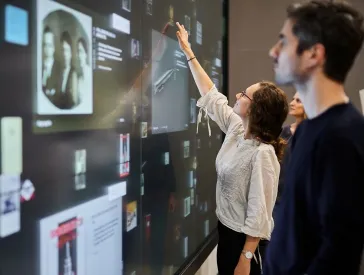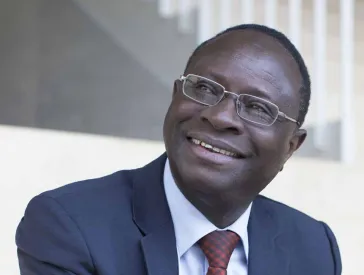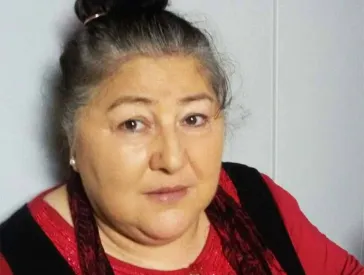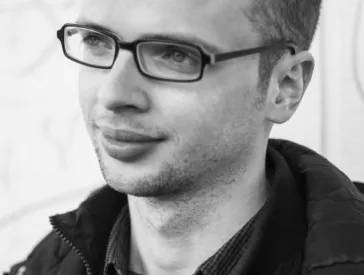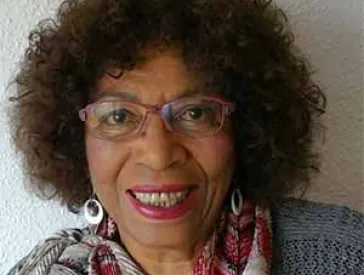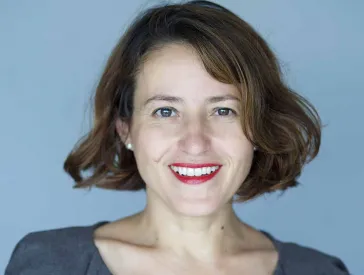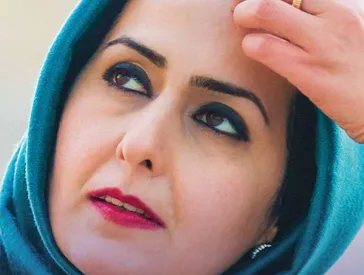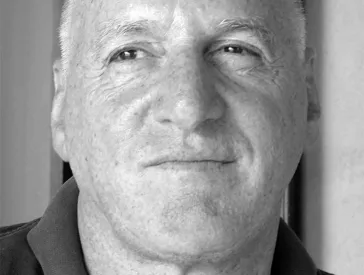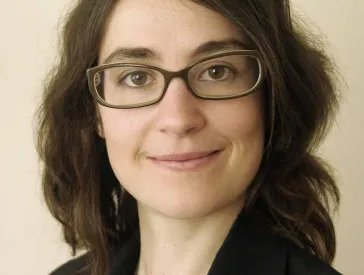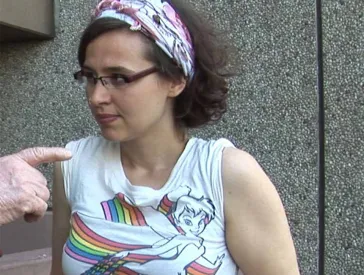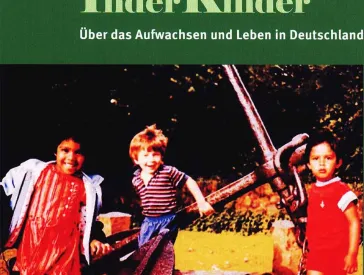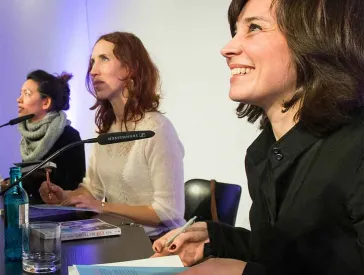Generation “kosher light”
Three Questions to Alina Gromova
Julia Jürgens
In 2013 the cultural anthropologist Alina Gromova published in her book Generation “kosher light” the results of her research on the lifestyle of young Jews of Russian-decent in Berlin. She presented the book on 9 September 2014 as part of the series New German Stories at the Academy of the Jewish Museum Berlin.
On 8 September 2014 Julia Jürgens did a short interview with Alina Gromova and and asked her the following three questions:
Julia Jürgens: Alina, for your study of an international group of young Jews in Berlin you took the city itself as your springboard. Exploring the locations where your subjects live, hang out, mingle and party enabled you to chart their diverse notions of identity, tradition and religion. Why did you opt for such an explicitly spatial focus?
Alina Gromova: Identity and tradition are terms often difficult to grasp, because they are interwoven with symbols, values, wishful thinking or memories. A space, however, has not only a symbolic but also a physical dimension and is therefore more palpable. Personally, I don’t see a space as a 3-D void waiting to be filled by people or things. On the contrary, people and things are what create a space in the first place. And urban space is especially fascinating, I find, because a broad cultural and religious spectrum often occupies one and the same spot, however tiny; and different elements simultaneously give rise there to their own spaces, so the result is a palimpsest of spaces that then interconnect.
Julia Jürgens: Your book is based on ethnographic field research that you undertook for your PhD thesis: for one year you accompanied fifteen Jews of Russian descent in their daily routines and had them show you their favorite cafés, meeting places, synagogues and restaurants. They even opened up their private space, their own homes to you. To what extent did your own biographical background help you gain access to this field? How did you find the right persons for your research and win their confidence?
Alina Gromova: Before I began the fieldwork, I had hardly any contact with other Jews of Russian descent, except within my own family. I therefore had to create my “field” from scratch, so to speak as a “distanced insider.” I attended Jewish religious services, cultural events and parties and took up contact with groups of people who were talking in Russian. I share their cultural background and language, so it was easy for me to join in their conversations. We know the same jokes, like the same Eastern European dishes and watched the same movies when we were kids. I was therefore quickly integrated in the groups and so had an easier time of it later, finding guinea pigs for my research.
Alina Gromova; Judith Metze
Julia Jürgens: The title of your book is Generation “kosher light.” Can you explain in a few words what distinguishes this generation?
Alina Gromova: The term “kosher light” is a colloquialism for a liberal approach to the traditional Jewish dietary laws, the kashrut. For example, people today may well avoid using milk and meat in the same dish and yet still prepare dairy products and meat in the same pot, rather than having one pot for each, as Jewish tradition requires. I’ve used the term “kosher light” for this young generation of Russian-speaking Jews, because these women and men take a self-assured and creative approach to Jewish tradition and religion and adapt them to their urban, Berlin-specific lifestyle—with regard not only to food, but also to clothes, to the Jewish tradition of study or to the choice of a partner.
The interview was conducted by Julia Jürgens (Academy program on migration and diversity).
Cover of the book Generation „koscher light“. Urbane Räume und Praxen junger russischsprachiger Juden in Berlin by Alina Gromova; transcript Verlag
Citation recommendation:
Julia Jürgens (2014), Generation “kosher light”. Three Questions to Alina Gromova.
URL: www.jmberlin.de/en/node/6353
Interview Series: New German Stories (12)

